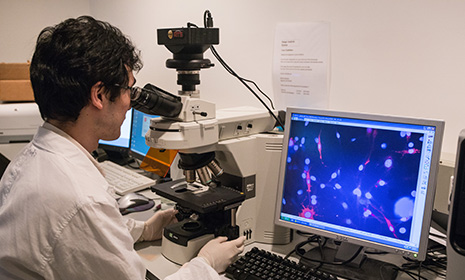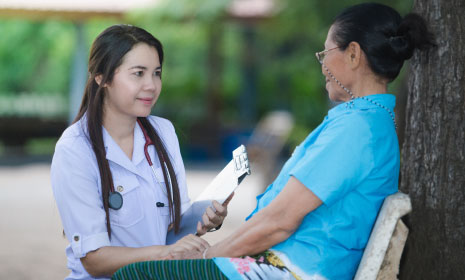Biography
Dr Shirley S.M. Fong is an Assistant Professor in the School of Public Health at the University of Hong Kong. She is also an Adjunct Associate Professor in the Department of Health and Physical Education at the Education University of Hong Kong and an Honorary Fellow (Physiotherapy) in the Department of Rehabilitation Sciences at the Hong Kong Polytechnic University. Before joining the School of Public Health, Dr Fong worked as an Assistant Professor in the Institute of Human Performance (HKU) and the Department of Health and Physical Education (EdUHK) and was a Clinical Associate (Physiotherapy) in the Department of Rehabilitation Sciences at the Hong Kong Polytechnic University. She worked as a physiotherapist for over 13 years and gained extensive clinical experience in pediatric, orthopedic and geriatric settings. She is licensed to practise acupuncture and is a certified Clinical Densitometrist (ISCD), Health Fitness Specialist (ACSM), Personal Trainer (NSCA, ACSM, IPTFA and ATFP), Sports Trainer (SMA), Tai Chi Qigong Instructor (HK Wushu and Art Service Centre) and Ving Tsun Martial Art Instructor (VTAA and HKWCU).
Being an allied health professional and a recreational martial art coach, Dr Fong’s primary research interest lies in developmental dysfunctions and, more specifically, in physical health of children with developmental coordination disorder. Beyond this area, she has a general interest in rehabilitation and physical activity and health of younger and older adults. She has received over 18 grants, including General Research Fund from the Research Grants Council and Health and Medical Research Fund from the Food and Health Bureau. Her research has produced a number of publications in highly-rated journals and she has published over 80 scientific articles and two books so far. Dr Fong also works closely with frontline health care professionals and the mass media to translate her research findings into clinical and community health practices.
Dr Fong is also an educator and has over 10 years of teaching experience at the tertiary level. She received a teaching award from the Hong Kong Professional Teachers' Union and a Master of Education degree from the Chinese University of Hong Kong. She teaches in the areas of physical activity measurement and kinetic anatomy. She has also mentored 6 PhD and 1 MPhil research postgraduates to date.
Dr Fong is a specialist (medicine, health sciences, education and sports science) of the Hong Kong Council for Accreditation of Academic and Vocational Qualifications and an honorary consultant of the Hong Kong Christian Service (Active Aging Service). She was the public relations manager of the Hong Kong Physiotherapy Association (a member organization of the World Confederation for Physical Therapy). She sits on the editorial committee of a number of journals such as Medicine and BMC Sports Science, Medicine and Rehabilitation.
Selected Publications
- Fong SSM, Guo X, Liu KPY, Ki WY, Louie LHT, Chung RCK, Macfarlane DJ. Task-Specific Balance Training Improves the Sensory Organisation of Balance Control in Children with Developmental Coordination Disorder: A Randomised Controlled Trial. Scientific Reports 2016;6:20945. [2015 impact factor=5.228] (Ranked 7 out of 62 under the category of “Multidisciplinary Sciences”) [link]
- Chow GCC, Fong SSM, Chung JWY, Chung LMY, Ma AWW, Macfarlane DJ. Determinants of sport-specific postural control strategy and balance performance of amateur rugby players. Journal of Science and Medicine in Sport 2016. DOI: 10.1016/j.jsams.2016.02.016 (PhD student paper) [2015 impact factor=3.756] (Ranked 7 out of 82 under the category of “Sport Sciences”) [link]
- Fong SSM, Ng SSM, Chung LMY, Ki WY, Chow LPY, Macfarlane DJ. Direction-specific impairment of stability limits and falls in children with developmental coordination disorder: Implications for rehabilitation. Gait & Posture 2016;43:60-4. [2015 impact factor=2.286] (Ranked 20 out of 82 under the category of “Sport Sciences”) [link]
- Fong SSM, Ng SSM, Luk WS, Chung JWY, Leung JCY, Masters RSW. Effects of a 6-month Tai Chi Qigong program on arterial hemodynamics and functional aerobic capacity in survivors of nasopharyngeal cancer. Journal of Cancer Survivorship: Research and Practice2014;8:618-26. [2015 impact factor=3.478] (Ranked 80 out of 213 under the category of “Oncology”) [link]
- Fong SSM, Ng SSM, Luk WS, Chung JWY, Chung LMY, Tsang WWN, Chow LPY. Shoulder mobility, muscular strength and quality of life in breast cancer survivors with and without Tai Chi Qigong training. Evidence-Based Complementary and Alternative Medicine 2013;Article ID 787169:7 pages. [2015 impact factor=1.931] (Ranked 7 out of 24 under the category of “Integrative & Complementary Medicine”) [link]
- Fong SSM, Fu SN, Ng GYF. Taekwondo training speeds up the development of balance and sensory functions in young adolescents. Journal of Science and Medicine in Sport 2012;15:64-8. [2015 impact factor=3.756] (Ranked 7 out of 82 under the category of “Sport Sciences”) [link]
- Fong SSM, Tsang WWN, Ng GYF. Taekwondo training improves sensory organization and balance control in children with developmental coordination disorder: arandomized controlled trial. Research in Developmental Disabilities 2012;33:85-95. [2015 impact factor=1.877] (Ranked 8 out of 71 under the category of “Rehabilitation”) [link]
- Fong SSM, Lee VYL, Pang MYC. Sensory organization of balance control in children with developmental coordination disorder. Research in Developmental Disabilities 2011;32:2376-82. [2015 impact factor=1.877] (Ranked 8 out of 71 under the category of “Rehabilitation”) [link]
- Fong SSM, Lee VYL, Chan NNC, Chan RSH, Chak WK, Pang MYC. Motor ability and weight status are determinants of out-of-school activity participation for children with developmental coordination disorder. Research in Developmental Disabilities 2011;32:2614-23. [2015 impact factor=1.877] (Ranked 8 out of 71 under the category of “Rehabilitation”) [link]
- Fong SM, Ng GYF. The effects on sensorimotor performance andbalance with Tai Chi training. Archives of Physical Medicine and Rehabilitation 2006;87:82-7. [2015 impact factor=3.045] (Ranked 4 out of 71 under the category of “Rehabilitation”) [link]








.png)
